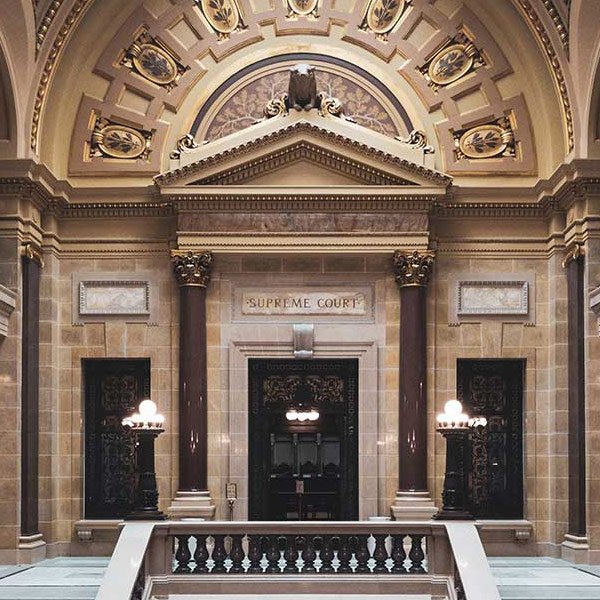The Supreme Court Case, Morse v. Frederick, 551 U.S. 393 (2007)
Case Study | Analysis Paper | Austin Kong
The Supreme Court Case, Morse v. Frederick, 551 U.S. 393 (2007)
The Supreme Court case, Morse v. Frederick, 551 U.S. 393 (2007), was argued on March 19, 2007 and decided on June 25, 2007 by the presiding judges at the time; John Roberts, John P. Stevens, Antonin Scalia, Anthony Kennedy, David Souter, Clarence Thomas, Ruth Bader Ginsburg, Stephen Breyer, and Samuel Alito. The petitioner of the case was principal Deborah Morse of Juneau-Douglas High School and the respondent was a student of hers, Joseph Frederick.
The whole case started on January 24, 2002 when Joseph Frederick displayed a banner with the words, “Bong hits 4 Jesus” at a school-supervised event on campus. Principal Morse then took the banner away and suspended Frederick for five days for violating the school’s anti-drug policy, but then increased the suspension for ten days after he quoted Thomas Jeffereson. Morse justified her actions because of the school’s strict policy that prohibits the promotion of illicit drugs on campus. Frederick then filed a civil rights lawsuit under 42 U.S.C. 1983 against Morse and the school board for violating his First Amendment right to freedom of speech. The District Court found no constitutional violation and ruled in favor of Morse at first and that the principal would have qualified immunity from the lawsuit. The U.S. Court of Appeals of the Ninth Circuit reversed the decision made by the lower courts and cited Tinker v. Des Moines Independent Community School District, which extended the freedom of speech to student speech except only when it causes a disturbance. The Circuit Court ruled that the punishment of Frederick’s speech was unconstitutional and the principal had no qualified immunity because her actions were unlawful.
However, the Supreme Court did not rule the same as the lower courts when it received its writ of certiorari. In a 5-4 majority for Deborah Morse, they reversed the Circuit Court’s decision and opined that school officials can prohibit a student’s message if they were promoting illegal drug use.
One of the most important legal questions at hand in this case was does the First Amendment allow public schools to prohibit students from displaying messages promoting the use of illegal drugs at school-supervised events? And also does a school official have qualified immunity from a damages lawsuit under 42 U.S.C. 1983 when, in accordance with school policy, she disciplines a student for displaying a banner with a drug reference at a school-supervised event?
One of the most important legal questions at hand in this case was does the First Amendment allow public schools to prohibit students from displaying messages promoting the use of illegal drugs at school-supervised events? And also does a school official have qualified immunity from a damages lawsuit under 42 U.S.C. 1983 when, in accordance with school policy, she disciplines a student for displaying a banner with a drug reference at a school-supervised event?
The opinion of the court was 5-4 in favor of Morse. Chief Justice John G. Roberts wrote the majority opinion stating clearly that “students do not shed their constitutional rights to freedom of speech at the schoolhouse gate.” Yet the rights of students “must be applied in light of special characteristics of the school environment.” He also said that “schools may take steps to safeguard those entrusted to their care from speech that can reasonably be regarded as encouraging illegal drug use.” To conclude, the school did not violate Frederick’s First Amendment by confiscating his pro-drug sign and suspending him.
Those who concurred with Justice Roberts included Justice Thomas, Justice Alito, Justice Kennedy, and Justice Scalia. Thomas writes that the First Amendment “was not originally understood to permit all sorts of speech,” especially in a school setting. “There are certain well-defined and narrowly limited classes of speech, the prevention and punishment of which have never been thought to raise any Constitutional problem,” citing Chaplinsky v. New Hampshire.
Justice Stevens wrote the dissenting opinion with Justice Souter and Justice Ginsburg joining that the Court barely mentions the motive behind Frederick’s displaying of his banner was to get the attention of a television news crew during an Olympic Torch Relay. While he agrees with the Court’s decision, he does not agree in believing the school’s interest in “protecting its students from speech ‘reasonably regarded as promoting drug use,’ which cannot justify disciplining Frederick for his attempt to make an ambiguous statement to a television audience simply because it contained an oblique reference to drugs.”
This ruling of the case sets the precedent that not all forms of speech are allowed in a school environment, especially ones depicting drug use. For Frederick displaying his banner of “Bong hits 4 Jesus” and others who are willing to follow in his footsteps of expressing themselves, they can be seriously reprimanded by the administration if they don’t agree with the message. For public schools, they now have the right to control all forms of student speech with this precedent set in stone even though school environments are already stifling as it can be. This can even mean more legal problems in this day and age where states are progressing towards the decriminalization and legalization of marijuana. New York State has legalized recreational marijuana yet SUNY New Paltz still remains strict in enforcing the Drug Free Schools and Communities Act and prohibits any use of the drug anywhere on campus. Would this mean that students over the age of 21 can’t actively participate in the discussion of legalization on campus or at least the decriminalization of it? I find this to be somewhat unconstitutional if a college does reprimand a student for expressing their interest in legalization on campus. Colleges and universities are supposed to be the foundation for individual expression and ideas and if SUNY New Paltz still does not allow that expression, then they are doing no better than a public high school.
